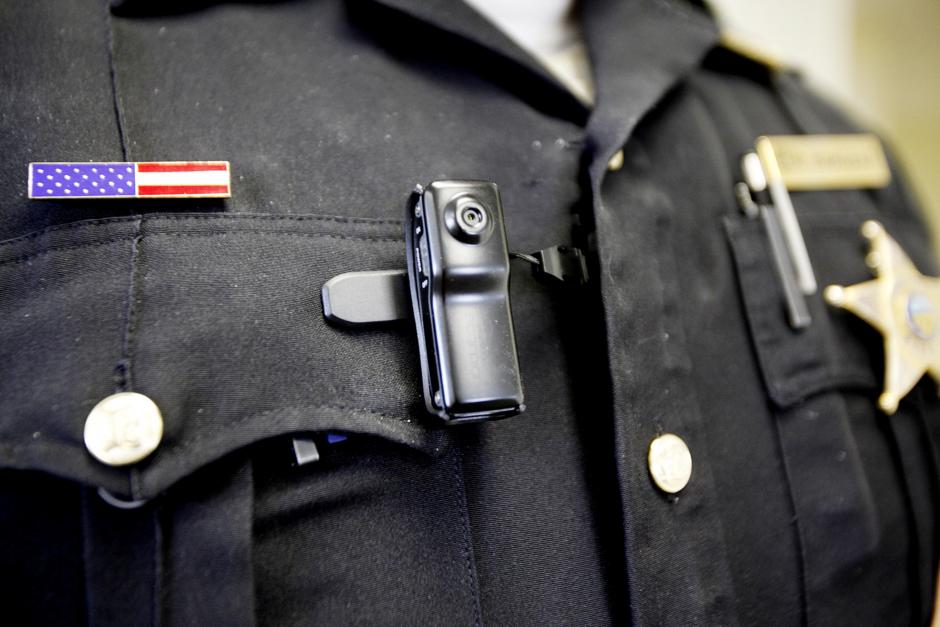President Barack Obama pitched a comprehensive body camera program for police across the country Tuesday. On the same day, Baltimore Mayor Stephanie Rawlings-Blake vetoed a City Council bill that would have set up a program locally.
The juxtaposition of political optics perhaps serves as an immediate snapshot of how thorny the body camera program will be to implement at the local level, no matter the sweeping gestures emanating from the White House.
In a statement, Obama listed the body-worn cameras for cops as the first priority in a new initiative aimed at “building trust between communities and local police.”
The proposal, which is a direct response to the outcry following a St. Louis grand jury’s decision not to indict the officer who killed Michael Brown in August, calls for a $75 million investment in body cameras over three years. That’s enough money to buy 50,000 body cameras, according to the White House. The President’s proposal would also provide money for new training at police departments, and provide more resources for reform.
The body cameras are capable of recording all of an officer’s actions while on-duty, which could provide what amounts to a first-hand visual account of a cop’s interaction with suspects and civilians.
Following the White House rollout, Mayor Stephanie Rawlings-Blake issued a public statement supporting the initiative.
“I applaud President Obama for taking concrete steps that will further efforts already underway in Baltimore to bring more accountability and transparency to policing,” she said.
But she wasn’t so supportive of Baltimore City Council.
Around the same time she voiced support for Obama, Rawlings-Blake sent a letter to the Council vetoing the body camera bill it recently passed.
The bill came on the heels of a Baltimore Sun investigation into police brutality lawsuits, and a pair of beatings that were caught on camera.
In yesterday’s letter, the mayor argues that the bill does not account for issues such as the scope of the program, whether officers on administrative duty should wear a body camera and privacy issues. The privacy issue is especially unchartered territory, since courts have yet to rule on whether footage of police entering someone’s home qualifies as public record.
Rawlings-Blake also argues that City Council should not be calling the shots at the police department, saying other police programs were not created by the Council.
“There exists no ordinance creating the SWAT team, or the equestrian unit, or mandating the use of the police helicopter,” she writes. “This confirms my inherent belief that these are all issues that should and indeed must be decided administratively and not legislatively.”
It was no secret that Rawlings-Blake didn’t like the body camera legislation. In fact, the Council went against her wishes when it passed the measure after she said she would veto it.
But with renewed focus on Ferguson and calls from the White House putting the technology front and center, there’s even more urgency to pass the program now than there was a month ago.
While the Council was passing legislation, the mayor said her administration has formed a working group that has already been studying body cameras.
“We have sought to learn from mistakes made in other jurisdictions, where in the rush to launch a program lawmakers failed to ask and answer critical questions necessary to ensure the success of body cameras,” Rawlings-Blake writes.
In this case, the mayor says her veto should not be mistaken for a lack of support.
“My opposition to this bill should not be confused with opposition to body cameras,” she writes. “It is not the end I object to but rather the means.”
Adding another piece to the stagecraft, Baltimore Police Chief Anthony Batts received an appointment that shows Rawlings-Blake’s administration and the White House aren’t completely out of step. On Tuesday, Batts was named to Obama’s Task Force for 21st Century Policing.
As Obama calls for body cameras, Rawlings-Blake vetoes local bill







